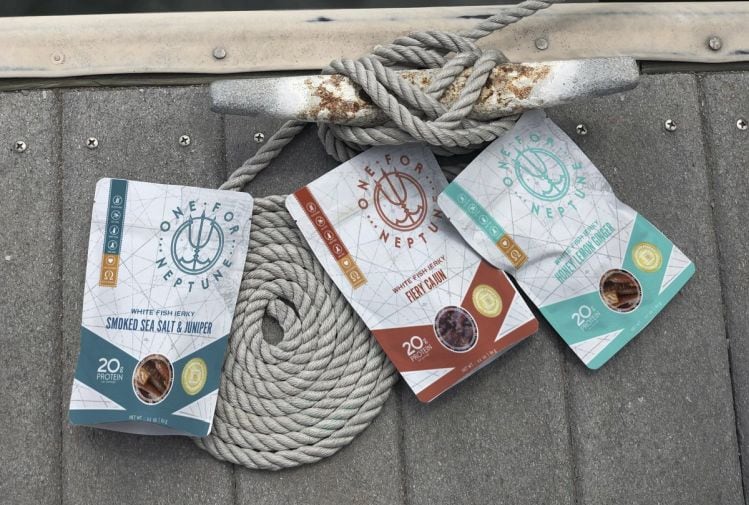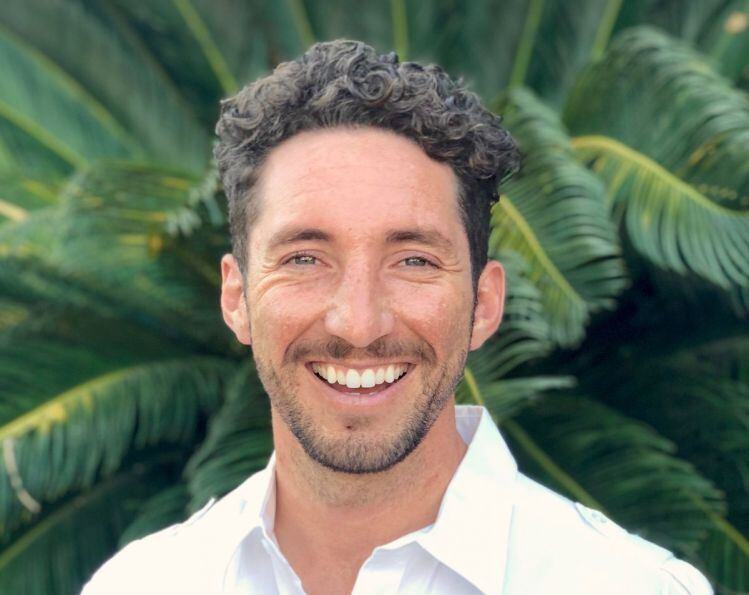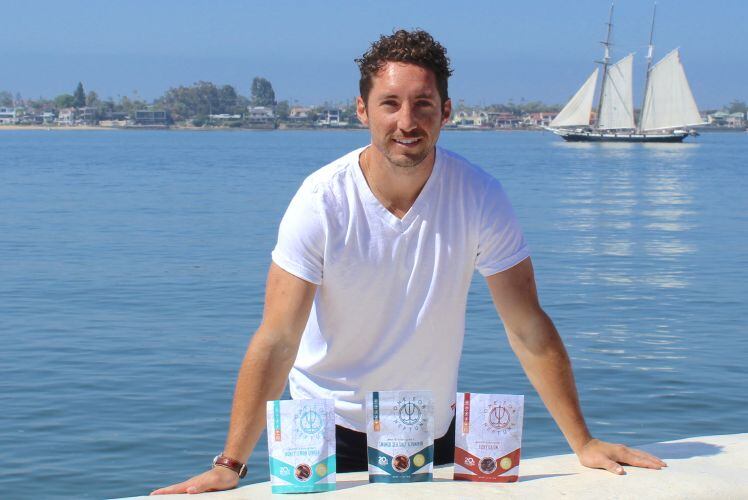OneForNeptune has just closed its Kickstarter campaign, raising more than $65,000 to produce and ship 10,000 packs of white fish jerky. Made using sustainably-caught Pacific rockfish, each 2.2oz pack contains 20g protein, is high in omega-3s, rich in selenium and comes in three variants: smoked sea salt and juniper; fiery cajun; and honey, lemon and ginger.
Currently available online for $7.99 a pack, the startup also recently secured a major order with healthy snack subscription service SnackNation, with OneForNeptune fish jerky rolling out nationwide this month in the monthly delivery boxes.
Nick Mendoza, founder and CEO of OneForNeptune, said the startup now wanted to secure further funding and investors to truly start to scale up.
“Our dream is value-added angel investors, particularly people with industry experience and contacts in the CPG or food industry,” Mendoza told FoodNavigator-USA.
“What's most important to us is a functional, good relationship with people that align with our mission,” he said.
'It always made sense to me to do something with white fish'
Mendoza, a marine scientist with a master’s degree in sustainable aquaculture, said the core mission behind OneForNeptune was to give consumers access to truly sustainable and traceable seafood.
“I've kind of always been a fish boy; a fisherman out on the water and I chose to study them in my career. And so, about a year and a half ago, I just up and left my life, my career, my girlfriend – everything in Monterey California – and moved back to my family's cattle ranch in New Mexico,” he said.
It was here that he started to consider more sustainable avenues for his family's beef product and started looking into the jerky market, but realized most of the growth was in beef alternatives with very few fish options.
“There's a few smoked salmon jerkies out there, but it always made sense to me to do something with white fish and I knew exactly the right sources to get really sustainable, high-quality fish that supported west coast fishermen.”
Pacific rockfish, Mendoza said, fit the bill perfectly. Once a severely over-fished species, it had now bounded back but unfortunately there was no market interest or demand to match.
“For me, I didn't become a founder of a snack food company because I wanted to become the founder of a snack food company. It was problems in seafood that I'd been turning over in my head,” he said.
“Seafood is the most internationally-traded commodity. The US imports 90% of its seafood from overseas and because the international supply chain is so fragmented, ultimately as much as 47% goes to waste because it's lost, it's by-catch, there's spoilage etc. ...Added to that, as much as two-thirds of seafood may be mislabeled because of a lack of traceability and such variability of white-fleshed fish,” he said.
Internationally, Mendoza said there continued to be high levels of fraud in seafood trade, meaning lots of product was unethically traded or sourced in an environmentally unfriendly way.

We want to 'force change' across the broader industry
All of these problems, he said, formed the foundations behind OneForNeptune's business concept and model.
The Pacific rockfish used for the first production run of jerky, for example, was legal quota by-catch from mid-water whitebait trawls off the west coast by Marine Stewardship Council (MSC) certified fisheries – product that was often undersized or not sought after and therefore wasted.
“An important distinction here is that when you think of by-catch it's something you want to avoid and you don't want to encourage by-catch by sourcing it, but rockfish is a sustainably-managed species. ...Starting with this really great, local source is, I think, going to be beneficial. We're hoping that as we grow, consumer demand for more traceable seafood and these pressures are going to force change across the broader industry.”
OneForNeptune had also developed an app called FindMyFish, he said, in partnership with non-profit organization Fish Trax Marketplace, that provided information on the fishermen, dates and location each fish jerky pack hailed from after scanning a QR code.
“You can be assured, not only is it coming from a sustainable place, you can feel a part of contributing to that community and why it's so important to know where your fish is coming from and what it is you're supporting, or what you're not supporting more importantly.”

Creating love for under-valued, under-utilized seafood
Asked if OneForNeptune would continue to source wild-caught fish, rather than farmed, he said: “I'm a big proponent of sustainable aquaculture – my degree is sustainable aquaculture – and it's finally occurring that people are realizing that just because something is a farmed form of seafood, that it's not bad.”
The global aquaculture market, Mendoza said, had drastically improved in recent years thanks to strong regulations and better operations and so, eventually it was a “definite possibility” for sourcing. There was also future potential to work with seaweed to create a sustainable vegan snack, he said.
“But, I think we're just getting started and have to focus on what's right in front of us. And the opportunity is, that there is all this seafood that isn't being produced for a particular market, and that's the opportunity we have – creating love for under-valued, under-utilized seafood, for now.”
OneForNeptune hopes to secure regional, specialty retail listings in certain west coast hubs like southern California, Seattle and Portland in the coming months and within a year be stocked nationally.
Asked where the company wanted to be in five years, Mendoza said: “I mean, I'm hesitant to even say. I think I need to focus on the immediate and hope for the best in the long-run. Right now, I want to do everything to see OneForNeptune flourish and grow.”

